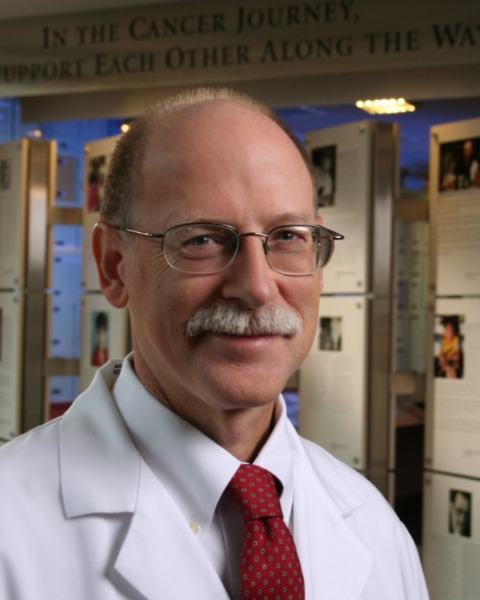
Peter M. Anderson, MD PhD
Professor
Cleveland Clinic
Pete Anderson MD, PhD likes to be a facilitator and catalyst for less toxic and improved sarcoma treatments and innovative multi-disciplinary sarcoma care. Areas of interest and contributions have included using radiopharmaceuticals, outpatient chemotherapy (e.g. continuous infusion ifosfamide/mesna) , monoclonal antibodies, immune treatments including mifamurtide, investigator initiated clinical trials (e.g. 153Sm-EDTMP, mifamurtide access study, and ONC201 in DSRCT and neuroendocrine tumors), use of glutamine-trehalose to reduce stomatitis, esophagitis, and enteritis, and virtual visits. Academic record: summa cum laude University of Minnesota, MD, PhD at Mt. Sinai School of Medicine and City University of New York (Biochemical Genetics). Residency: combined Internal Medicine and Pediatrics at Duke. Fellowship, then 7 years in Pediatric Hematology/Oncology/BMT at University of Minnesota where he had a lab. and obtained 3 patents. At Mayo Clinic 1995-2005 Pete started work with bone-seeking radiopharmaceuticals and obtained 2 patents on glutamine+ disaccharide to reduce chemotherapy and radiation toxicity. In 2005-2014 while at MD Anderson Cancer Center he tested mifamurtide, samarium, and 223Ra against osteosarcoma and anti-IGF1R against osteosarcoma and Ewing sarcoma. He launched an improved glutamine-trehalose product for mucositis (Healios) which is obtained from Enlivity.com and also developed outpatient sarcoma chemotherapy regimens. Now at Cleveland Clinic Pete has become “super-expert” at use of virtual visits to help patients & caregivers/r achieve understand better understanding of the principles of therapy, options including local control and clinical trials, ways to improve nutrition and to reduce toxicity, and how to develop therapeutic alliances with sarcoma teams and caregivers. He will share at CTOS both use of virtual visits to pre-screen for clinical trials and also a new project looking at sarcoma specific fusion gene sequences, in-frame analysis and what the fusion peptides would be to obtain information to develop successful future sarcoma mRNA vaccines for Ewing sarcoma, DSRCT, rhabdomyosarcoma, and CIC-DUX sarcoma.
